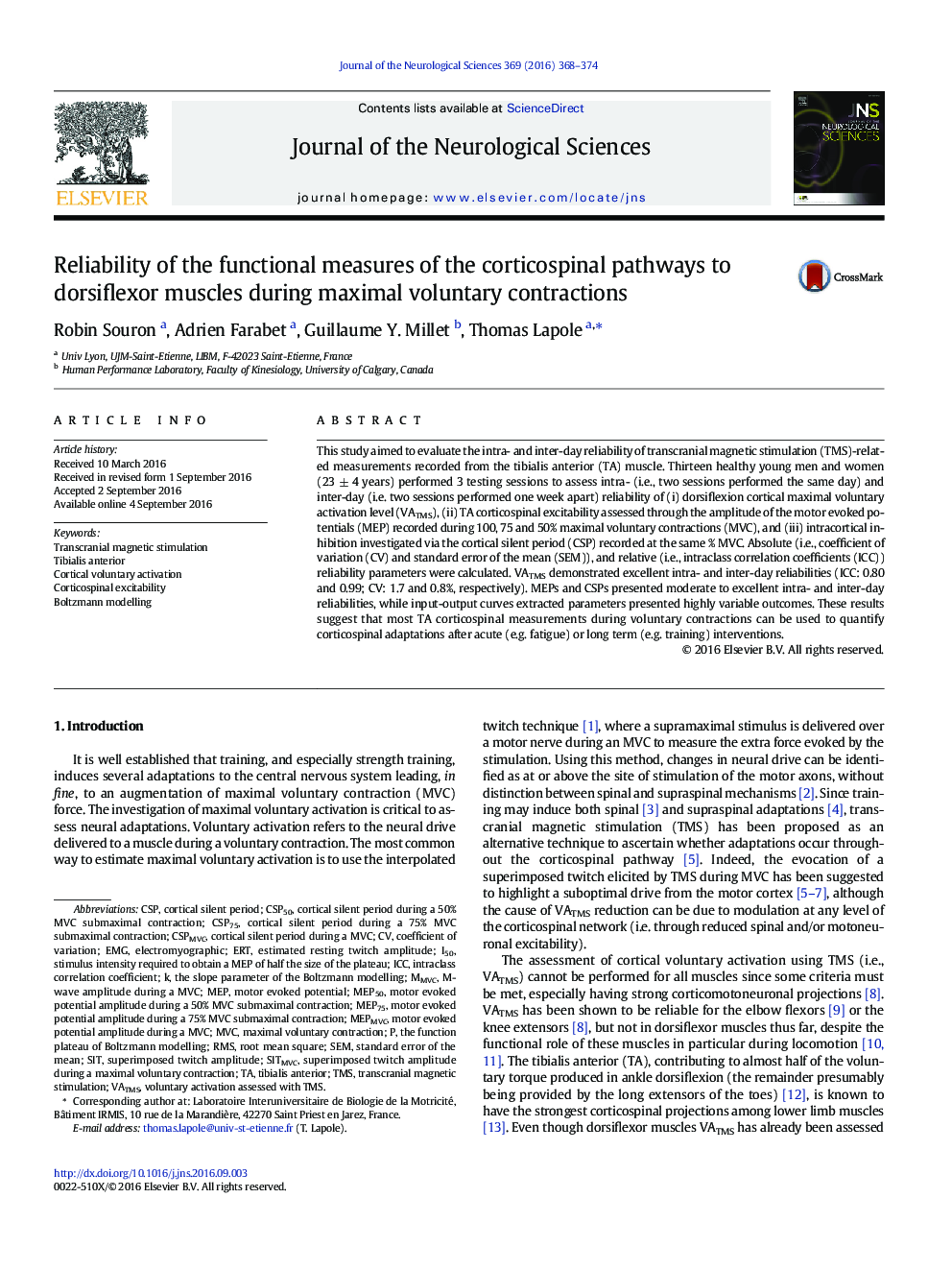| Article ID | Journal | Published Year | Pages | File Type |
|---|---|---|---|---|
| 8273960 | Journal of the Neurological Sciences | 2016 | 7 Pages |
Abstract
This study aimed to evaluate the intra- and inter-day reliability of transcranial magnetic stimulation (TMS)-related measurements recorded from the tibialis anterior (TA) muscle. Thirteen healthy young men and women (23 ± 4 years) performed 3 testing sessions to assess intra- (i.e., two sessions performed the same day) and inter-day (i.e. two sessions performed one week apart) reliability of (i) dorsiflexion cortical maximal voluntary activation level (VATMS), (ii) TA corticospinal excitability assessed through the amplitude of the motor evoked potentials (MEP) recorded during 100, 75 and 50% maximal voluntary contractions (MVC), and (iii) intracortical inhibition investigated via the cortical silent period (CSP) recorded at the same % MVC. Absolute (i.e., coefficient of variation (CV) and standard error of the mean (SEM)), and relative (i.e., intraclass correlation coefficients (ICC)) reliability parameters were calculated. VATMS demonstrated excellent intra- and inter-day reliabilities (ICC: 0.80 and 0.99; CV: 1.7 and 0.8%, respectively). MEPs and CSPs presented moderate to excellent intra- and inter-day reliabilities, while input-output curves extracted parameters presented highly variable outcomes. These results suggest that most TA corticospinal measurements during voluntary contractions can be used to quantify corticospinal adaptations after acute (e.g. fatigue) or long term (e.g. training) interventions.
Keywords
TMSCSPMEP50ICCMEPRMSSITMVCI50Tibialis AnteriorEMGelectromyographicTranscranial magnetic stimulationCorticospinal excitabilitymaximal voluntary contractionstandard error of the meancortical silent periodCoefficient of Variationintraclass correlation coefficientSEMMotor evoked potentialroot mean squareERT
Related Topics
Life Sciences
Biochemistry, Genetics and Molecular Biology
Ageing
Authors
Robin Souron, Adrien Farabet, Guillaume Y. Millet, Thomas Lapole,
